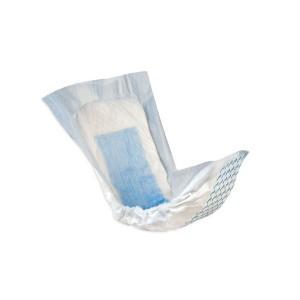Urinary incontinence occurs when you cannot control your bladder and unexpectedly leak urine. Although common, incontinence should not be considered as normal. How do you know if you have incontinence? Use the checklist below to find out:
- Do you wear pads to help prevent leakage?
If so, are you wearing the right kind? There are absorbent pads designed specifically for incontinence. These pads are similar to menstrual pads. - Do you leak urine when you sneeze, cough, laugh or simply stand up from a sitting position? Or how about when you engage in any physical activity, like a sport or lifting heavy objects?

If so, you may be experiencing a type of incontinence called stress incontinence. Stress incontinence is caused by pressure (or stress) on the bladder. - Have you’ve ever been pregnant or given birth?
If so, your pelvic floor muscles may be weakened or stretched out, causing involuntary bladder leakage. Don’t worry, bladder problems after pregnancy are usually temporary and can be treated with pelvic floor exercises and behavioral changes. - Do you have sudden or frequent urges to use the bathroom?
If so, you may have an overactive bladder or experiencing urge incontinence. This can be caused by various factors from diet to urinary tract infections to neurological disorders. - Do you find yourself declining to events and outings in fear of having an accident in public?
If so, this is indication that you may be suffering from urinary incontinence. Many people with this condition feel embarrassed, alone and reluctant to seek medication attention. This often results in low self-esteem and a lower quality of life. - Have you stopped participating in sports or other recreational activities because you’re afraid of urine leakage?
If so, this is also an indication that you may have incontinence. Many people who experience incontinence are still able to participate in sports and stay active with the use of behavioral changes and protective undergarments. - Do you feel as if your bladder is never empty?
If so, you may have overflow incontinence. This is when your bladder always seems full even though you constantly use the bathroom. Sometimes the bladder gets too full or “overflows” and unexpected leakage occurs. Overflow incontinence can be caused by obstruction in the urethra, weak bladder muscles and nerve damage. - Do you have problems not making it to the bathroom in time?
If so, you may have an overactive bladder or overflow incontinence. You can practice bladder retraining and do kegel exercises to help suppress urges to go. - Are you constantly getting up in the middle of the night to pee?
If so, you might be experiencing nocturia, which is a bladder condition in which one excessively wakes up to urinate at night. This condition can be caused by a variety of factors, including excessive urine production, low bladder capacity, untreated diabetes, and urinary tract infection.
Urinary incontinence affects millions of people around the world, with causes ranging from medication incompatibility to something more serious, like diabetes or prostate cancer. If you’ve answered yes to any of these questions, you should contact your doctor as soon as possible. He/she can help you determine the cause of your urinary problems and help you maintain an active lifestyle.
